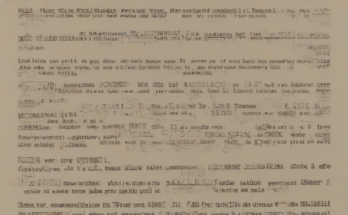Decoding Veteran Car Donations: Legitimacy, Impact, and How to Donate Wisely
Donating your car to support veterans is a generous act, offering a way to help those who have served our country. However, the landscape of car donation charities is complex, and not all organizations operate with the same level of transparency and efficiency. This in-depth guide explores the legitimacy of veteran car donations, highlighting crucial factors to consider before making your donation.
Understanding the Process: From Donation to Impact
The process of donating a car to a veteran’s charity typically involves contacting the organization, arranging for vehicle pickup, and receiving a tax-deductible receipt. However, the crucial element lies in how effectively the organization utilizes your donation to benefit veterans. The legitimacy hinges on several key factors:
- Transparency and Accountability: A legitimate charity will readily provide information about its financials, including how much of the proceeds from vehicle sales goes directly to supporting veterans’ programs. Look for readily available annual reports and audited financial statements.
- Program Specificity: Does the charity clearly define how the funds raised through car donations support veterans? Look for specifics, such as scholarships, housing assistance, job training, or healthcare services. Vague descriptions should raise red flags.
- Registration and Accreditation: Reputable charities will be registered with the relevant state and federal authorities. Check the charity’s registration status with the IRS (in the US) and other relevant regulatory bodies. Accreditation by organizations like the Better Business Bureau (BBB) or GuideStar can also indicate trustworthiness.
- Vehicle Valuation and Sale Process: Understand how the charity values your vehicle and how it’s sold. A transparent organization will explain its process for maximizing the value of your donation, ensuring that a fair market price is obtained.
- Fundraising Costs: Be aware that a portion of your donation will go towards the charity’s administrative and fundraising costs. A legitimate charity will openly disclose these costs. Organizations with excessively high administrative costs should be viewed with skepticism.
Identifying Red Flags: Warning Signs of Illegitimate Charities
Several indicators suggest that a veteran car donation charity may not be legitimate. Being aware of these red flags can protect you from fraudulent organizations:
- High-Pressure Tactics: Legitimate charities will not employ high-pressure sales tactics or aggressive fundraising methods. If you feel pressured to donate immediately, proceed with caution.
- Unclear or Vague Information: A lack of transparency regarding the charity’s operations, financial statements, and program details is a major red flag. If you cannot easily find this information, it’s best to avoid the organization.
- Requests for Personal Financial Information: Legitimate charities will not ask for sensitive personal financial information beyond what’s necessary for processing your donation. Be wary of organizations that request excessive personal details.
- Unsolicited Calls or Emails: While some legitimate charities may contact you, excessive unsolicited calls or emails, especially those using aggressive or misleading language, should be treated with suspicion.
- Lack of Online Presence or Negative Reviews: A legitimate charity will typically have a well-maintained website with contact information, financial statements, and program details. Negative reviews or complaints online should be thoroughly investigated.
Researching Veteran Car Donation Charities: Due Diligence is Key
Before donating your car, conduct thorough research on the chosen charity. This critical step ensures that your donation effectively supports veterans and avoids fraudulent organizations:
- Check the Charity’s Website: Examine the website for transparency, including financial information, program descriptions, and contact details. Look for evidence of IRS registration (in the US) and other relevant accreditations.
- Review Online Reviews and Ratings: Check platforms like Charity Navigator, GuideStar, and the Better Business Bureau (BBB) for reviews and ratings. These resources provide valuable insights into the charity’s reputation and effectiveness.
- Contact the Charity Directly: Reach out to the charity directly with questions about its programs, financial statements, and vehicle donation process. A legitimate charity will readily provide clear and detailed answers.
- Compare Multiple Charities: Don’t limit yourself to one organization. Compare several veteran car donation charities to find one that aligns with your values and demonstrates strong accountability and transparency.
- Consult with Financial Advisors: Consider discussing your car donation plans with a financial advisor. They can provide insights into tax implications and help you choose the most effective way to support your chosen charity.
Maximizing the Impact of Your Donation: Tips for Effective Giving
To ensure your car donation has the maximum impact, consider these best practices:
- Choose a Charity with a Clear Mission: Select a charity with a well-defined mission focused on specific veteran support programs. This ensures your donation directly supports the causes you care about most.
- Inquire About the Donation Process: Understand the entire process, from vehicle pickup to sale, and ensure the charity has a transparent system for handling donated vehicles.
- Request Documentation: Obtain all necessary documentation, including the tax-deductible receipt, to claim the donation on your taxes. Retain copies of all communications and records.
- Consider the Vehicle’s Condition: A vehicle in better condition will generally fetch a higher price, leading to a larger donation for the charity. Assess your vehicle’s condition honestly and choose a charity that can handle various vehicle conditions.
- Research Tax Implications: Understand the tax implications of your car donation before making your contribution. This involves knowing the fair market value of your vehicle and how to properly claim the deduction on your tax return.
The Importance of Responsible Giving: Protecting Yourself and Veterans
Donating your car to support veterans is a commendable act. However, responsible giving involves due diligence and a commitment to making informed choices. By understanding the process, identifying red flags, and researching charities thoroughly, you can ensure your donation makes a genuine and positive impact on the lives of veterans. Remember that protecting yourself from fraudulent organizations is just as important as supporting worthy causes.
By taking the time to research and understand the nuances of veteran car donations, you can contribute confidently and make a real difference in the lives of those who have served our country. Your generosity, combined with informed decision-making, can ensure your donation makes the impact it deserves.



